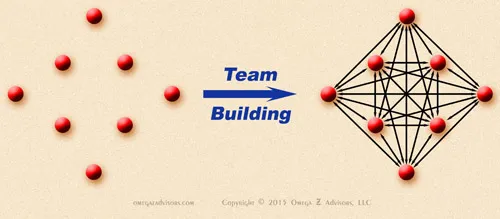Making Socializing at Work a Teambuilding Tool
The secret to getting things done, to driving change is relationships. They are also the secret to enjoying our jobs and being productive. These two thoughts form the platform for making socializing at work a teambuilding tool.
The Research behind Socializing at Work
People with a best friend at work are “seven times more likely than the typical worker to be engaged on the job.” Socializing is one of two keys to job enjoyment. Herman Miller, the office furniture company, found that “fostering better social interaction equals increased contentment.”
The down side is when these relationships are bad. That is when we refer to them as office politics. Office politics are relationships gone sour.
What Does Socializing at Work Mean?
Socializing at work can mean taking breaks together, sharing work tips and venting. It can mean talking about vacations, families, fashions, sports plus many others. The face-to-face contact that comes with this is very important. Simple social actions correlate to happiness and success on the job. “Those who sat at larger [cafeteria] tables were 36% more productive during the week.”
Socializing at work means sharing. Share ideas, tips and experiences. Share problems and solutions.
Turning Socializing at Work into Teambuilding Tool
People like breaks in training and seminars. They can network. They can socialize. This adds to the event and to job enjoyment and productivity.
There are many other ways to promote socializing at work:
- Form small project teams of two or three.
- Create smaller groups within larger teams and committees.
- Increase the length or number of breaks in meetings.
- Avoid always putting the same people together.
- In three-person teams put one quite different from the other two.
- Sometimes assign seats to break up cliques.
- Have teams share training, product, service or other ideas before the group.
- Assign coming up with a meeting’s agenda or content.
General Concepts
The idea is to encourage:
- Discussion
- Engagement
- Diversity
- Dissent
- Achievement
Small, diverse teams do well. Once groups get beyond three, it becomes too easy for some to become disengaged.
The task or purpose for the small team does not need to be grand. Teambuilding occurs from the process of working to a goal.
It is best if there is no single, obvious answer. The more teams must work together, the stronger they become.



